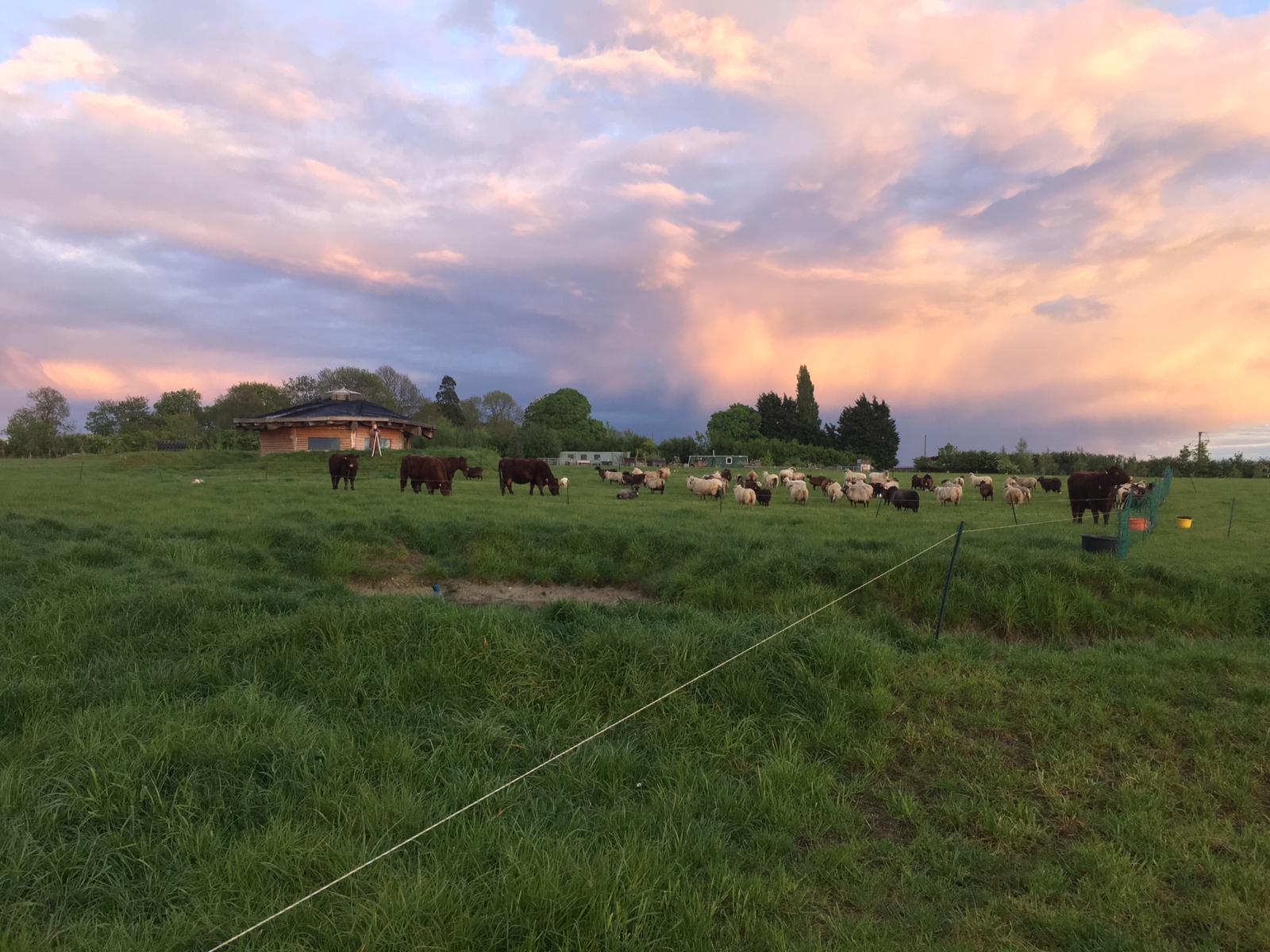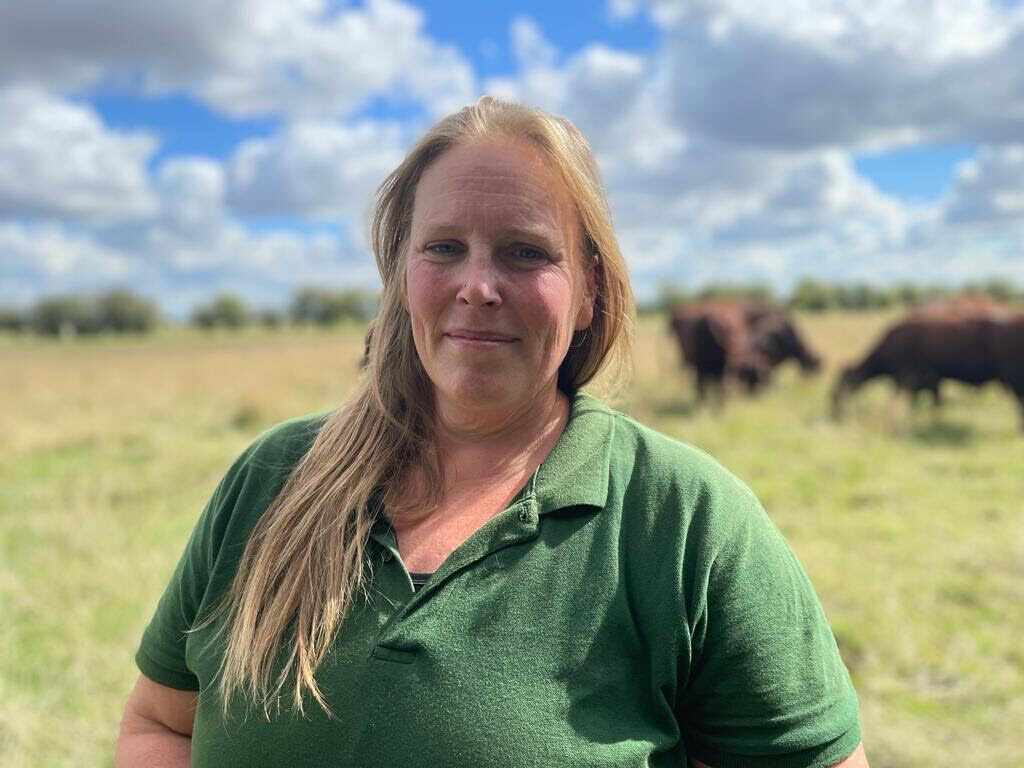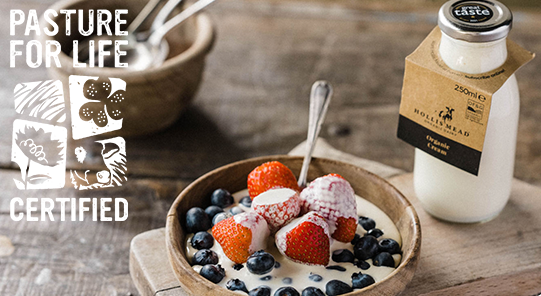Three farmers start the process to become PfL certified
The road to PfL certification
The Pasture for Life team responsible for delivering the Royal Countryside Fund ‘Farm for the Future’ programme in East Anglia and East Midlands have taken a decision that may appear rash.
Was it the sunshine combined with a general feeling of bonhomie and positivity as we sat enjoying the beautiful surroundings at Old Hall Farm that prompted Hannah Thorogood, Rebecca Mayhew and I (Sarah Juggins) to agree to us all to start the process of applying for PfL certification?
It is something all three of us had contemplated, with both Hannah and Rebecca having made moves towards starting the process shortly after joining PfL. But circumstances, distractions and time had all presented barriers that meant the idea was consigned to the ‘sometime in the future’ column on each of our respective ‘to-do’ lists.
For all three of us, the reasons for not chasing certification were definitely not through a lack of belief in the ethos. A visit to Rebecca’s farm near Norwich will reveal a herd of beautiful Jersey cattle moving with stress-free grace from one carefully managed paddock to another. Hannah’s 18- acre permaculture farm, with plenty of additional rented grazing for her sheep and cattle, is a testament to her belief in the importance of careful grazing management for soil health.
My own situation is a little different as I am currently scraping and begging for additional grazing land for my own cattle herd in the heavily arable landscape of West Norfolk. However, the farmer I work with is himself heading down the pathway to a more regenerative approach and he sees livestock as integral to that, so there is plenty of potential for the future.
Over the coming months, the three of us will chart our journey towards Pasture for Life certification. We hope that by sharing our own experiences, we will help others to make decisions about their livestock operations that work for the good of the land and for the good of the animals. By presenting three working case studies, we also hope that readers will find us relatable. And by making this a ‘warts and all’ account, we hope to provide some invaluable learning points.
The Inkpot farm, Lincolnshire
 The Inkpot farm, Lincolnshire
The Inkpot farm, Lincolnshire
 Hannah Thorogood runs the Inkpot farm
Hannah Thorogood runs the Inkpot farm
Our first stop along the journey is at The Inkpot farm in Lincolnshire.
Hannah runs a herd of Lincoln Red cattle, a flock of sheep and produces turkeys.
The farm is certified organic and the cattle and sheep only ever eat grass. They are moved on to fresh pastures every day, all year round, leaving at least three months for the grass to re-grow.
As the Inkpot Farm website explains: ‘This system is a regenerative grazing technique which builds soil, creates habitat and sequesters more carbon from the atmosphere and into the soil, than any tree-based system. It also creates the perfect conditions for soil bacteria called methanotropes, which breathe in more methane than the cows produce and poo it into the soil as carbon.’
As an organic farm, operating to these principles, it seems that Hannah is perfectly placed to become PfL certified. However, as Hannah explains, it is not quite as simple as that.
‘My main concerns have been around cost. This is a very small farm and there is a certain amount of admin to do for the certification. I have to weigh up whether my time should be spent on additional administration work or should it be spent on my day-to-day tasks.
Not only is Hannah a farmer but she also lectures permaculture and a mother to two school-age daughters. It is not difficult to see that every minute is both precious and accounted for.
‘I remember the first time I tried to do it (certification) was about eight years ago. I started filling the forms in and part of the process was to upload a copy of our farm logo. I didn’t have one at that point, but it was something I wanted to do so I focused on that first which distracted me from progressing with the certification application. A year or two later a similar loop happened with the farm website.’
For Hannah, the thought of regular inspections isn’t an off-putting aspect of certification.
‘I am already organic, so doubling up with inspections makes total sense. However, like most people, I tend to leave getting my all my records in order often gets left to the last couple of days before the inspection. The plus side is, it means those records happen. It’s a catalyst for action, a bit like getting accounts done in time for HMRC deadlines.’
A barrier to getting the certification done with which many people will emphasise is the necessity of certification when it comes to selling produce.
Hannah has a loyal customer base who already understand the significance of her management style.
‘I haven’t really needed certification as I am selling direct to customers at a small scale. In that way my customers are our certification – they know the farm and follow how we do things.’
With an eye to the future and the potential to expand the business, it seems that now is the perfect time for Hannah to move towards certification. ’
As the farm grows and we market outside of the hyper local sphere, Pasture for Life certification is a label that customers at farmers markets and other farm shops that we supply can trust and look for. That can only help us market our product and raise awareness of the way we rear our livestock.’
In the next installment we hear from Sarah Juggins and the how she has worked with neighbouring farmers to overcome obstacles to progressing towards PfL certification.




